Average sizes and life expectancy for this breed:
Savannahs are tall, lean, graceful cats with striking dark spots and other bold markings. They are a hybrid of a domestic cat and a medium-sized African wild cat. While classed as a domestic cat breed, they look like their ancestral source, the African Serval, but smaller in stature.
This cat breed stands out for their large pointed ears and their spotted golden, black or silver smoke coat. They are affectionate and energetic, with a remarkably long neck and legs, tall ears, and a medium-length tail. The Savannah is both uncommon and beautiful. Moreover, they are also extraordinarily graceful and well-balanced.
Savannahs are intelligent, determined cats that can sometimes be headstrong whenever their curiosity gets the best of them. So, don't be surprised if your Savannah can teach themselves to open cupboards and doors, turn on faucets, flush toilets or knock small items off of a shelf to see what happens.
Savannahs are sociable and loyal. They bond deeply with their families and human companions and are known to greet them at the door and follow them from room to room to see what they are up to. However, they are far too active to be lap cats and they enjoy their personal space. Instead, they prefer to be near their human companion rather than on them.
This cat breed is known to be a challenging yet rewarding feline companion to own. So, note that if you desire to have a low-energy cat to snuggle with you all day, think twice about purchasing a Savannah.
They have a lot of energy and require regular physical and mental stimulation. They are created by crossing an African Serval with a domestic cat and then breeding their offspring to other cat breeds such as Oriental Shorthairs, Egyptian Maus, Ocicats, and others. Savannah cats are a new breed, recognized by The International Cat Association recently in 2012.
It’s important to note if Savannah cats don't get the activity and exercise they need, they may get bored and make their own fun. Thus, they can be a little destructive and even develop unwanted behaviours around the house.
For a hardworking human companion who can keep up with this cat's needs, Savannahs make a high-spirited, lively family member with a lot of affection to give. They are an excellent choice for families with older children because they match the energy of this age range. For individuals that tend to be away most of the day to work, a companion such as a cat-friendly dog or another cat can be a great playmate for a Savannah.
Savannahs are classified as generations ranging from F1 to F4. F2, F3 and F4 Savannah cats are legal in the UK, however, they are illegal in some US states.
See available kittens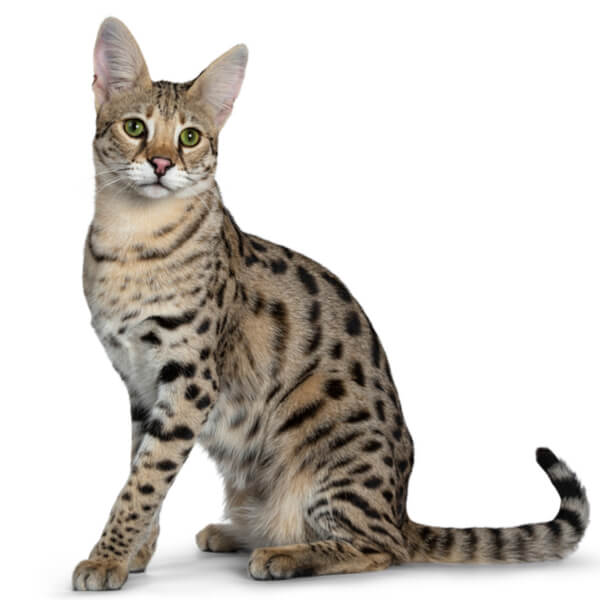

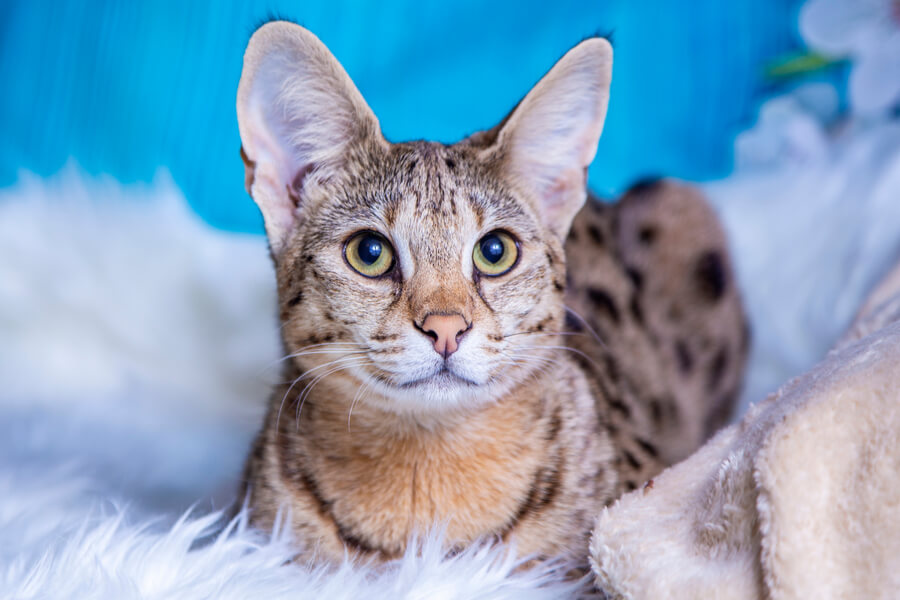


Savannahs were first developed in the 1980s by Judy Frank, a Bengal cat breeder located in Pennsylvania. Judy produced the first Savannah kitten from a domestic cat crossed with an African serval.
After hearing about this kitten, cat breeders Joyce Sroufe and Patrick Kelly joined forces to create and build a new cat breed. Among the cat breeds that contributed to Savannah's development were spotted breeds such as Oriental Shorthairs, Bengals and Egyptian Maus and domestic shorthair cats. Outcrossing is no longer allowed now that the cat breed is already established.
The International Cat Association (TICA) started registering Savannahs in 2001. The organisation granted the cat breed's full recognition, which is also known as championship status, in 2012. However, while they are legal to own in the UK (except the F1 generation), these sophisticated, wild-looking felines have not yet been accepted by the Governing Council Cat Fancy. But the good news is that a lot of reputable breeders in the United Kingdom are now creating well-bred Savannahs as their popularity increases and their numbers progressively rise.
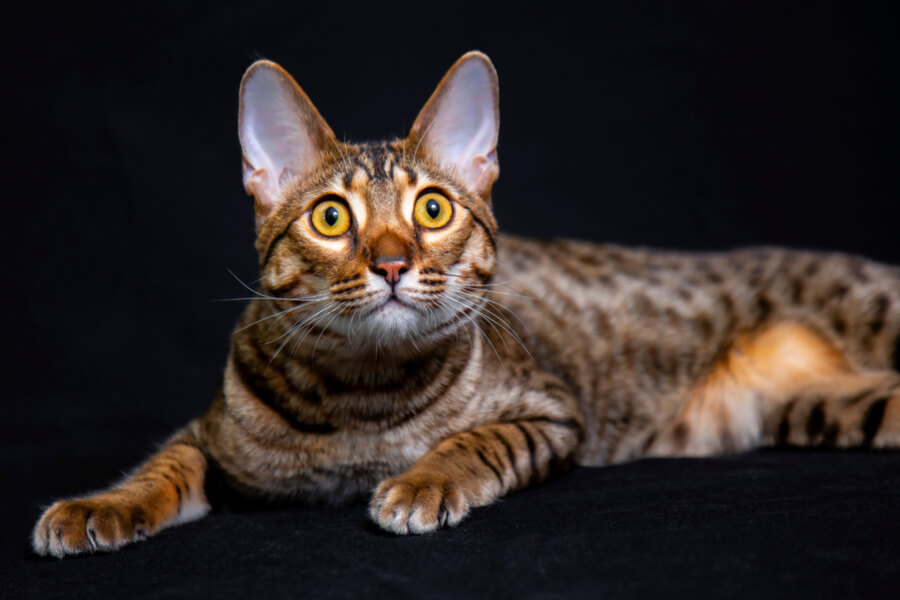
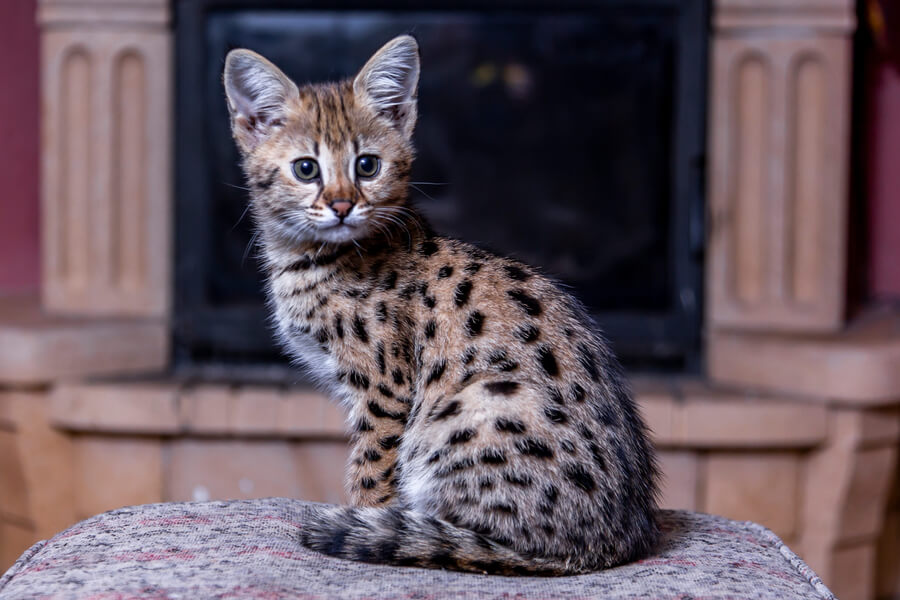
Savannahs are known for their elegant appearance. This cat breed is tall, with a lean body and prominent spotted coat, which makes this beautiful cat look a bit like a mini cheetah. The Savannah can stand about 17 inches tall and has been crowned the world's tallest domestic cat by the Guinness Book of World Records.
The Savannah is a unique looking, well-balanced feline and one that stands out in a crowd. They are proud, graceful cats with large, tall ears like their ancestor, the African Serval wild cat. These enormous ears that are set high and wide apart and much deeper at the base but with rounded tip. They stand very erect, and they can be furnished with well-defined ocellis or eyespot markings.
They have medium-sized eyes that are set well under the feline's slightly hooded brow. The top of their eyes is a boomerang shape, while the bottom half is more almond-shaped. They have tear stain markings between and along with their eyes and noses. These gorgeous cats can have any eye colour, and these colours do not have to match their coat colour.
Their chins recede, so it follows the line of the cat's triangular-shaped head. Their nose extends a little, which gives the look of their chin being a little sunken. Their muzzles are tapered as well, with no indication of there being a break. Their face is also triangle-shaped from their eyes to their nose's tips, with nostrils being set low. Their nose leathers are a bit convex, so they wrap over their nose. Savannahs have long, lean necks that add to their overall appearance.
A Savannah's body is elongated, well-muscled and very slender with deep, full rib cages and well-prominent shoulder blades. Their bellies are moderately tucked up, and hindquarters are well-rounded. Their long hips and thighs are full and rather heavy to the rest of their bodies.
Their legs are longer than the average cat, and they are well-muscled, with their back legs a little longer than their front legs. They have medium-sized, oval-shaped feet and their tails are slightly thick, medium in length and wider at the base.
Savannah's coat has a highly stunning, short, close-lying coat with a somewhat harsh feel because of the bristlier guard hairs that cover a softer undercoat. Their coats are stunningly marked and spotted, which is another characteristic that sets them apart from other cat breeds. Their spots are a lot softer compared to their guard hairs. Their colours are black, silver or brown and other non-standard colours like chocolate, fawn and blue.
If you are a novice cat parent and want to live with a sweet, calm lap cat, Savannahs are not the right breed for you. This cat is an active, bold, adventurous feline who lives life in the fast lane. Their athletic body permits them to jump to very high places.
Most Savannahs are courteous hosts who will meet your guests with a calm composure, as well as your close companions. Make sure you have a sharp sense of humour if you want to live with a Savannah. It takes a brilliant person to outsmart a Savannah. They are poised, attentive, curious, and outgoing.
Also, you may need to switch faucet styles to stop them from turning it on and off and make it their own private waterworks. You may also need to fix some childproof locks to keep these cats from opening your cupboards and cabinets.
To live pleasantly with a Savannah, make sure to spend a lot of time interacting with them. Be sure they have exciting toys to occupy them when you are not around. Reward them when they do things you like and redirect their energy and interests when they do something bad.
This cat breed is athletic and energetic, and more likely to jump onto the top of your furniture than to sit idly by its bowl. Savannahs are said to be more like dogs than cats because they often seek new challenges to discover and explore. These agile and alert cats also adore water, and they would not hesitate to splash around in your bathtub or pool.
The good news is Savannah cats can be easily trained. Like dogs, Savannahs are exceptionally loyal and will follow their favourite human companion around the household just for companionship.
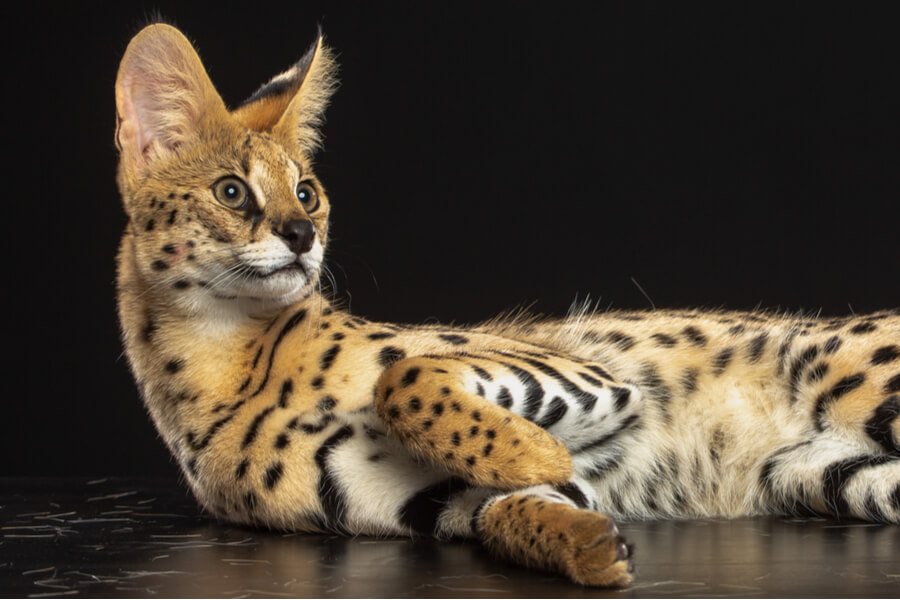
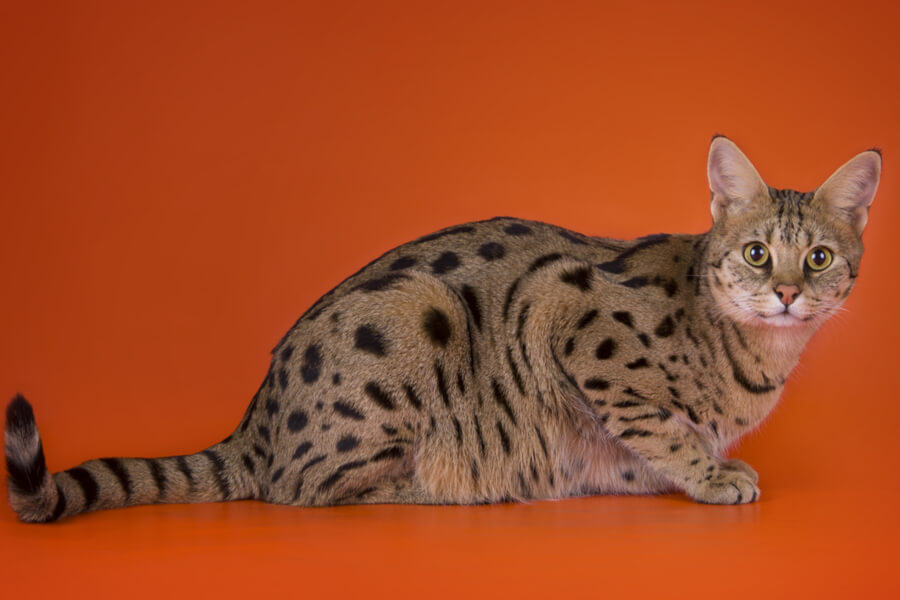
It's vital to give mental stimulation to all breeds of cats, but with Savannah, you must take extra effort as they are full of energy and highly intelligent.
Savannahs need lots of enrichment, exercise and activities. Cat breeders recommend doing clicker training to help keep them mentally and physically stimulated. Challenge their clever minds and keep them focused by teaching them games, commands and tricks. Give them many puzzle toys and other interactive toys to play alternately that reward them with kibbles or treats when they learn how to operate them.
These happy and approachable cats are friendly and affectionate cats that get deeply devoted to their human companion. When a Savannah is properly socialised and trained during their kittenhood, they will become a well-rounded and well-mannered feline companion.
Brush your Savannah's short to medium-length coat once or twice a week to eliminate dead hair and spread out skin oils. Savannah cats need to get used to combs and brushes from an early age to avoid it being a stressful experience for either of you.
There's a wide variety of cat combs and brushes available on the market, depending on what works for you and your cat. You can start with a very soft brush that does not pull at fine kitten fur or damage their skin. Each time you have finished brushing, give a small treat. If regular coat care does not cause any issues or problems, try more effective combs and brushes when they reach adult age.
Brush your Savannah’s teeth at least once a week to prevent periodontal disease. Trim their nails twice a month or when needed. For their almond-shaped eyes, wipe their corners with a soft, damp cloth to eliminate any eye discharge. Make sure to use a separate part of the damp cloth for each eye to avoid spreading any infection.
Check the ears weekly. If their ears look dirty, wipe them out with a cotton ball or soft damp cloth moistened with a vet-approved ear cleaner. If the ear has a foul odour, it is best to contact your vet for treatment.
Their litter boxes should always be clean as they are precise about bathroom hygiene. If it is left unclean, they tend to use other places in the house.
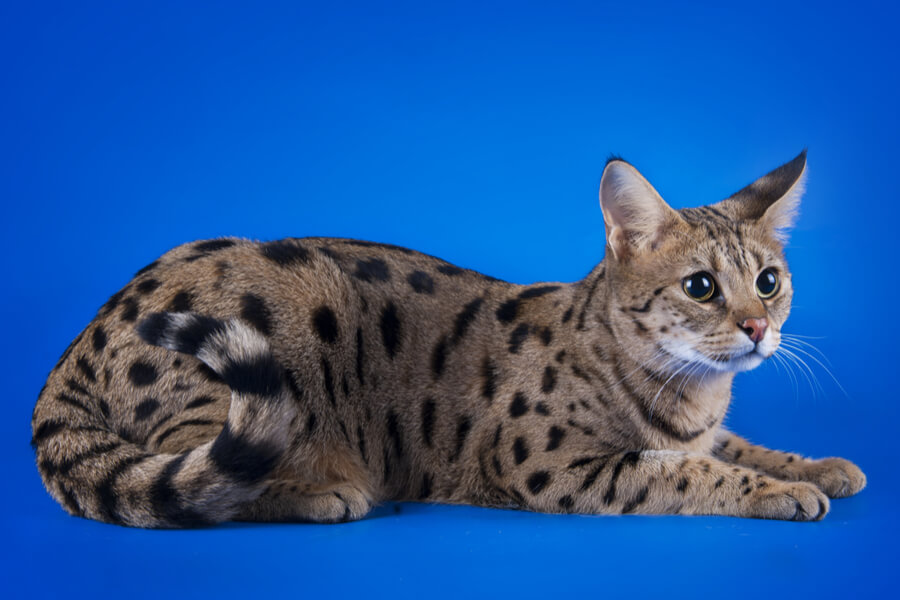
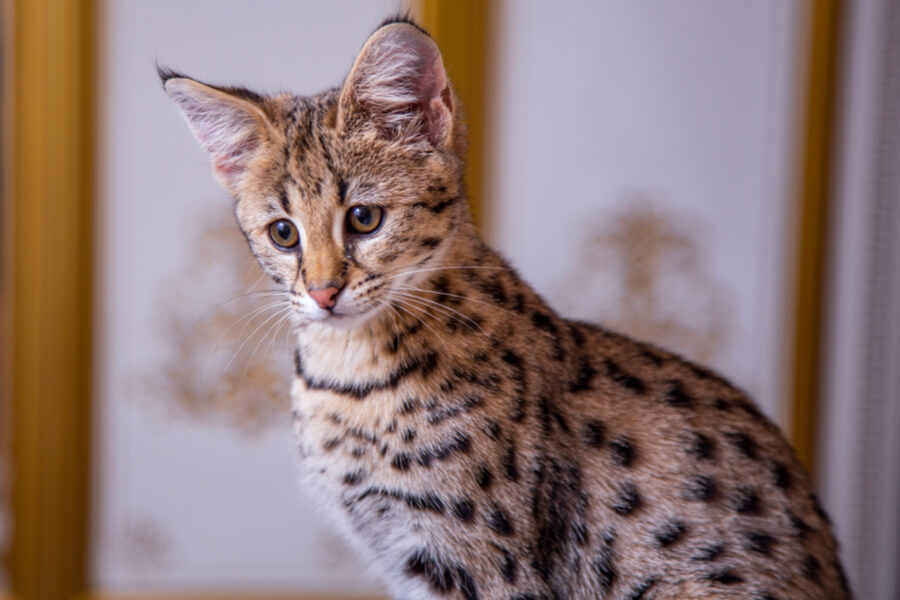
Savannahs are generally healthy and do not have any known congenital problems, except Pyruvate kinase (PK) deficiency, which has been identified in this breed. However, because this is a hybrid breed, it is essential to only buy from a registered and reputable Savannah breeder with ethical practices.
You should ask to see DNA health checks on the Savannah kitten and its parents. For better temperament, you should also choose a later generation Savannah.
Early socialisation is crucial for Savannahs because, during kittenhood, they can become distrustful of visitors. Though Savannahs make excellent family pets, they may not be an ideal choice if you have young kids who might hug or chase them around the house. It is probably a good idea to bring home a Savannah when your kids are a little older and calmer.
Likewise, early socialisation and training for the Savannahs is vital to make them great feline companions to other cats and cat-friendly dogs.
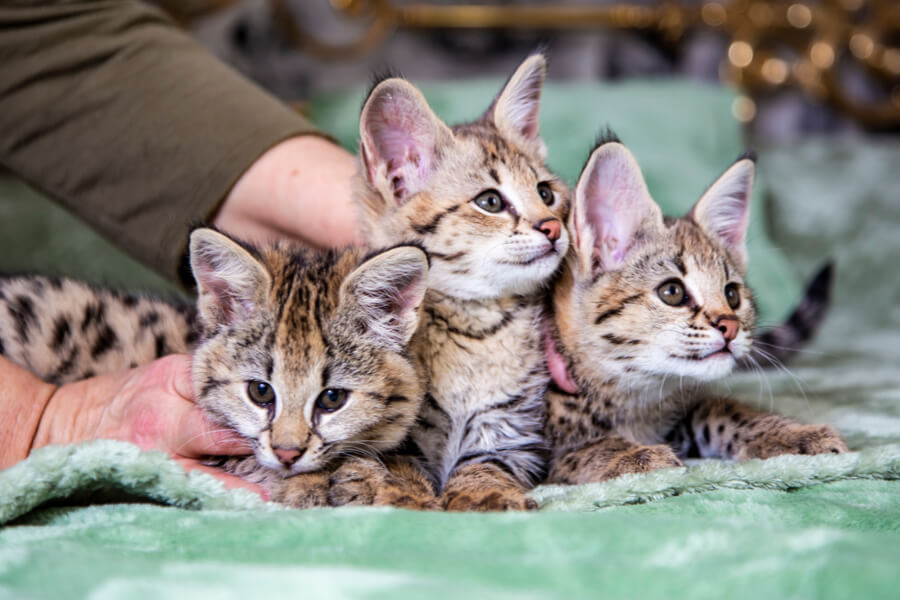
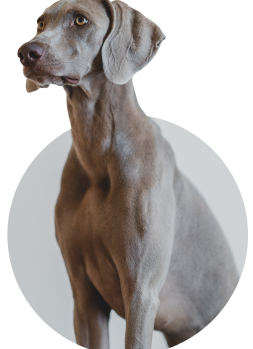
We can connect you with Breeders that are specialized in this particular breed.
See available kittens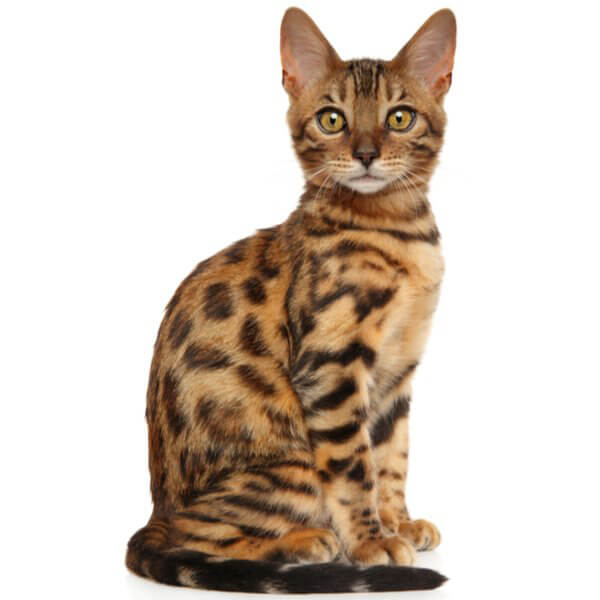
United States of America
Size : Medium
Coat : Short
Registration : TICA, CFA, FIFe, GCCF
Vocality : Medium
Hypoallergenic : Yes
Grooming : Once a Week
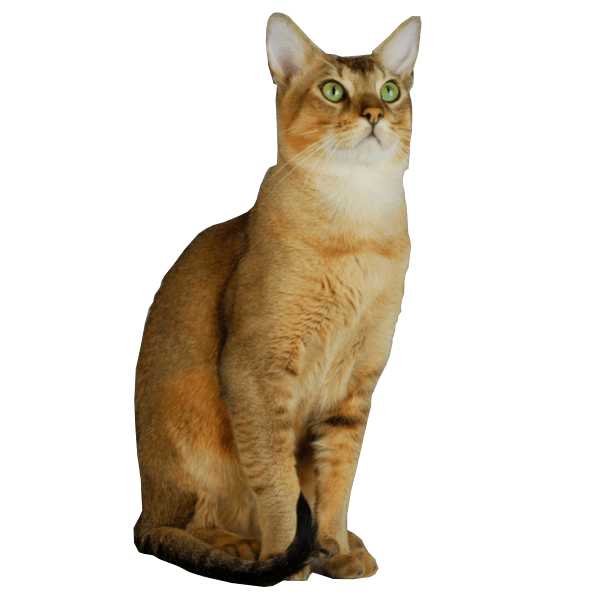
Egypt
Size : Large
Coat : Short
Registration : TICA
Vocality : High
Hypoallergenic : No
Grooming : Once a Week
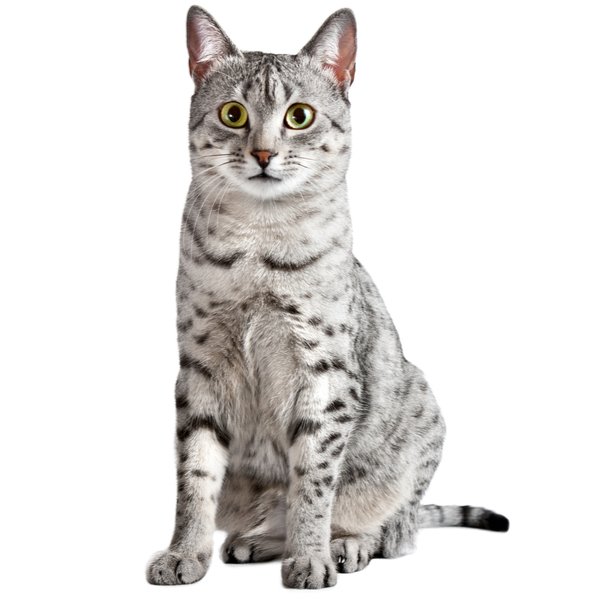
Egypt
Size : Medium
Coat : Short
Registration : GCCF, TICA, CFA, FIFe
Vocality : Low
Hypoallergenic : No
Grooming : Once a Week
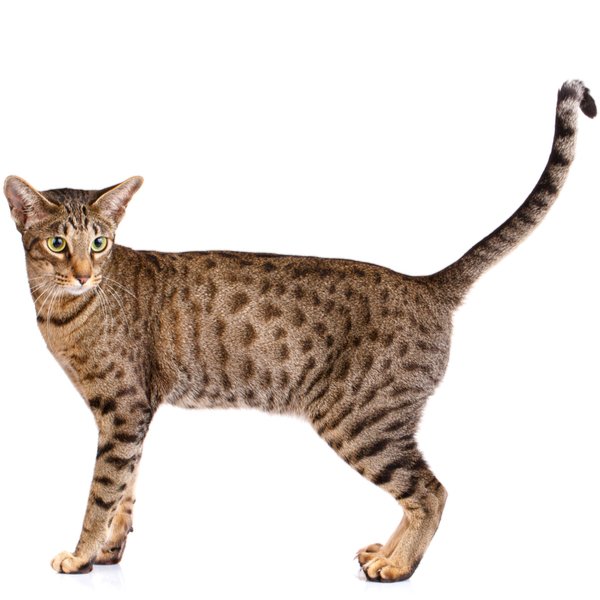
United States of America
Size : Medium
Coat : Short
Registration : GCCF, TICA, CFA, FIFe
Vocality : Medium
Hypoallergenic : Yes
Grooming : Once a Week


Need some advice?
Whether you're a first time pet owner, an experienced pet owner, a new or long-time breeder, or just curious about pets, we've got you covered!
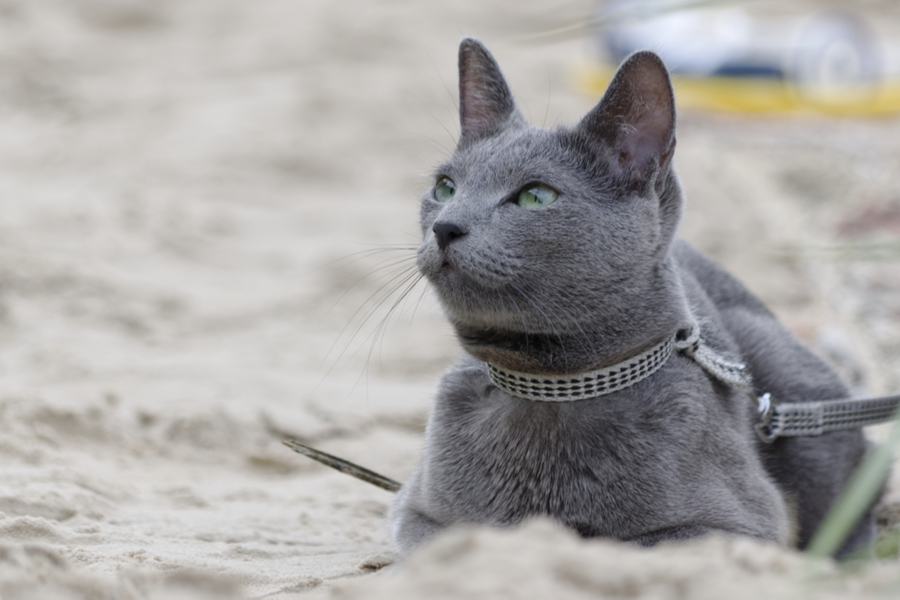
January 17, 2024
What Is The Personality Of Russian Blue Cats?
Russian Blue cats are most known for their distinctive shimmery blue-silver coat and piercing green eyes. However, this breed’s calm and gentle temperament is what makes them shine the most in the feline world.
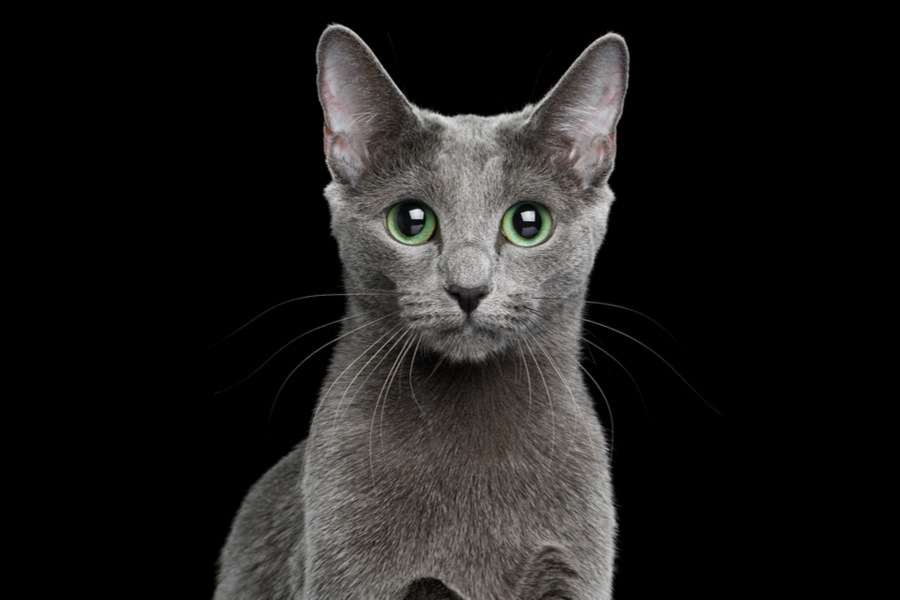
January 17, 2024
10 Facts About Russian Blue Cat Breed
Russian Blues are one of the most aesthetically stunning cat breeds, with a gorgeous plush silvery coat and vibrant green eyes. However, it’s not only their appearance that is beautiful; their nature is too.
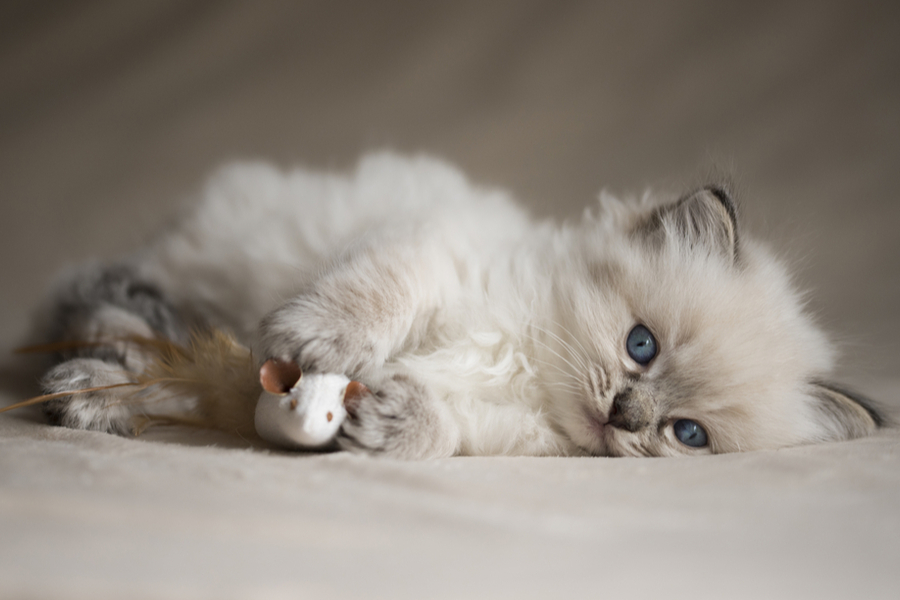
January 17, 2024
How To Choose The Right Cat Breed for You
Cats can make the most fantastic animal companions; they are adorable, friendly, and loving. However, not all felines are created equal. There are many different breeds, of which each has its unique personality traits.
Need some help?
Contact us to speak to our friendly advisor, who will gladly help you find your dream pet!



We are registered in England and Wales under registration number 12568840,
and our registered office is at 58-60 Kensington Church Street, W8 4DB London, England.
© 2023 The Pedigree Paws